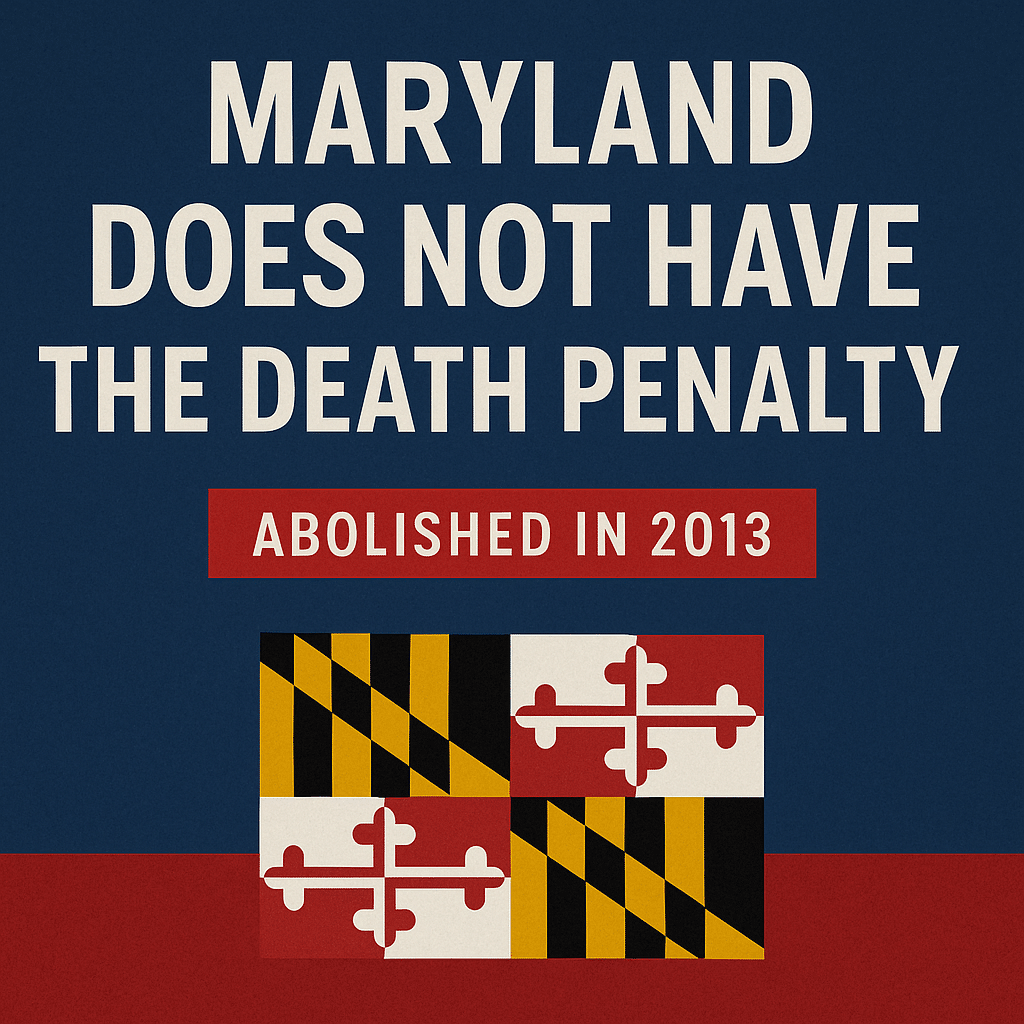
If you’re wondering whether Maryland still uses the death penalty, the answer is no. Maryland abolished the death penalty in 2013, making it one of the many states that no longer carry out executions. But that doesn’t mean those convicted of the most serious crimes walk free—far from it. Let’s break down what happened, what it means today, and what criminal sentencing looks like for the most serious offenses in Maryland.
When Did Maryland Abolish the Death Penalty?
In May 2013, Maryland became the 18th state to repeal the death penalty when then-Governor Martin O’Malley signed Senate Bill 276 into law. The repeal meant that any crime committed after the bill went into effect could no longer result in a death sentence. The repeal followed years of public debate, reports of racial and geographic disparities, and concerns about wrongful convictions.
What Happened to Inmates Already on Death Row?
At the time of the repeal, four men remained on Maryland’s death row. In December 2014, Governor O’Malley commuted all four of their sentences to life without the possibility of parole. This action officially cleared Maryland’s death row and ended capital punishment in the state altogether.
What Is the Maximum Penalty for Serious Crimes in Maryland Now?
Today, the most severe sentence available under Maryland law is life imprisonment, either with or without the possibility of parole. For crimes such as:
- First-degree murder
- Felony murder
- Murder of a law enforcement officer
- Murder during child abuse or kidnapping
prosecutors may still seek life without parole, which ensures that the individual will never be released.
Why Did Maryland Abolish Capital Punishment?
Several reasons contributed to the repeal:
- Risk of executing innocent people: DNA evidence has overturned dozens of wrongful convictions nationwide.
- Racial and geographic disparities: Studies showed inconsistencies in how the death penalty was applied across counties.
- High cost: Death penalty cases are more expensive than cases seeking life sentences due to prolonged litigation and appeals.
- Evolving public opinion: A growing number of Maryland residents began to support alternatives like life without parole.
How Does Maryland Compare to Other States?
As of now, more than 20 states have abolished the death penalty, and several others have moratoriums in place. Maryland was the first state south of the Mason-Dixon line to ban capital punishment in modern times. Neighboring states vary—Virginia abolished the death penalty in 2021, while Delaware had its death penalty statute declared unconstitutional in 2016.
What Should You Do If You’re Facing a Serious Charge in Maryland?
If you or someone you care about is facing a charge like first-degree murder or another violent felony, the stakes couldn’t be higher—even without the death penalty. You could be looking at life imprisonment without parole, which means you’ll never be released.
At Southern Maryland Criminal Defense, we fight aggressively for our clients’ rights and freedom in Charles County, Prince George’s County, Calvert County, and St. Mary’s County. Whether you’re being investigated or already charged, you need an experienced Southern Maryland criminal defense attorney by your side.
Contact us today to schedule a free consultation and get the representation you deserve.
